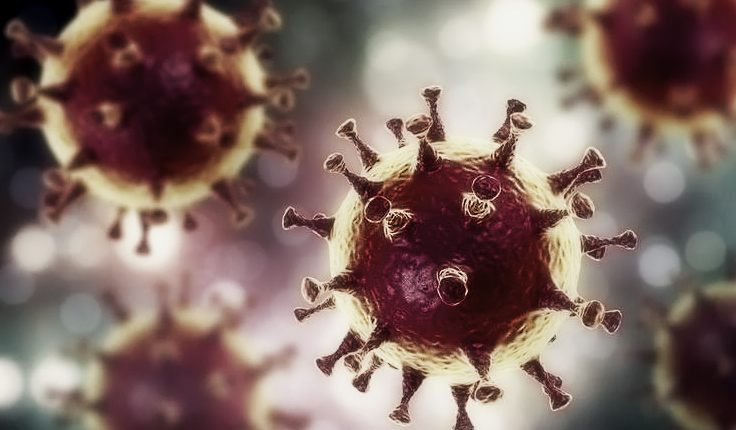
By Dr Tharani Loganathan
For the past month, my colleagues and I have stepped up our role in creating positive messaging during this COVID-19 pandemic. Things in Malaysia have escalated very quickly. A total of 19 fatalities and 1,796 cases of COVID-19 were reported as of noon Wednesday (March 25). We have been on 'lockdown' or enforced the Movement Control Order since the 18th of March, and the lockdown period has been extended until the 14th of April. Epidemiologists have predicted that prolonged, sustained and drastic public health measures are the necessary evil in combating this disease.
Malaysians are rightly proud of our healthcare system, with it's guaranteed Universal Health Coverage for all citizens. Our public health system is one of the most advanced and prepared to deal with any crisis, as seen by our previous success handling epidemics of the Nipah virus, H1N1, SARS and Zika. We are also rightfully proud of our management of HIV/AIDS in Malaysia, being one of few nations to have achieved zero Mother-to-Child-Transmission of HIV. That being said, several recent events have thrown us off tangent in the COVID-19 pandemic.
Firstly, we had an unpredicted change in government in mid-February, leaving us without a cabinet for nearly two weeks. The absence of leadership during this crucial period is telling. A health crisis of this nature demands strong leadership and a whole of government approach. The Ministry of Health cannot by itself contain an epidemic of this magnitude.
Secondly, we were late in the game in imposing social distancing. Our initial positive cases were related to travel history to China and other countries with community spread of COVID-19. The Ministry of Health was swift in its detection, containment of these cases and their contacts. However, international travel was still unchecked and there were no directives against gatherings. The second wave of cases was linked to those having travelled overseas and infecting locals through social engagements like meetings and close familial and work contact. Then two week ago, we had a mass religious congregation with some 16,000 participants and 1,500 foreigners. Currently, 62% of all COVID-19 cases in Malaysia are related to this event, and delegates from this congregation have brought back the disease to Brunei, Singapore, Thailand and possibly other countries.
Thirdly, our new Prime Minister made the bold decision to announce the Movement Control Order on the 16th of March. However poor messaging led to the possible furthering of viral transmission by causing a mass exodus of people back to their home towns, spreading the infection widely to all parts of the country. The combination of these events has brought us to our current situation.
How do we move forward? This is a time for social solidarity and we need to realise that our collective actions impact everyone in society. At an individual level, we must all actively comply with the Movement Control Order. Yes, this is difficult, both economically and socially, nevertheless, social distancing is the much needed public health intervention to delay the peak of the epidemic, buying time for our health system. We should assume that everyone we come into contact with is potentially infected and take appropriate precautions by maintaining a social distance of at least 1m and diligently practising hand hygiene.
Public hospitals face a shortage of personal protective equipment and big-ticket items like ventilators. Crowd-sourcing is a powerful tool for individuals to work together to source and donate these items, before government-to-government agreements and other mechanisms kick-in to revive the depleted global supply chain. This is the time for the private sector to step up. Private hospitals in Malaysia have received extensive incentives from the government to encourage the proliferation of medical tourism. However, none of the private hospitals in Malaysia currently have the ability to contend with COVID-19.
Currently, elective surgery, non-urgent outpatient appointments and non-COVID admissions are cancelled or diverted from the 33 COVID-19 designated public hospitals to other public hospitals. Moreover, public clinics (Klinik Kesihatan) are inundated with COVID-19 screening activities. Private hospitals should consider working with the public sector to manage displaced patients that would otherwise be unable to afford private healthcare services.
At a societal level, we are forced to change the way we do things. This is a long-awaited, much-needed improvement to our status-quo. For example, our schools and universities will have to migrate to e-learning, companies will have to implement work-from-home policies and flexible working hours, the banking sector will fully migrate to e-banking, and we will fully embrace online commerce by building strong, supportive environments around these new realities.
Needless to say, these are interesting times and we are writing the new history of our nation. Despite the best efforts of the Ministry of Health, our collective action is crucial to withstand the onslaught of this pandemic.
(Dr Tharani Loganathan is Public Health Medical Specialist and Medical Lecturer at Universiti Malaya.)
ADVERTISEMENT
ADVERTISEMENT


































